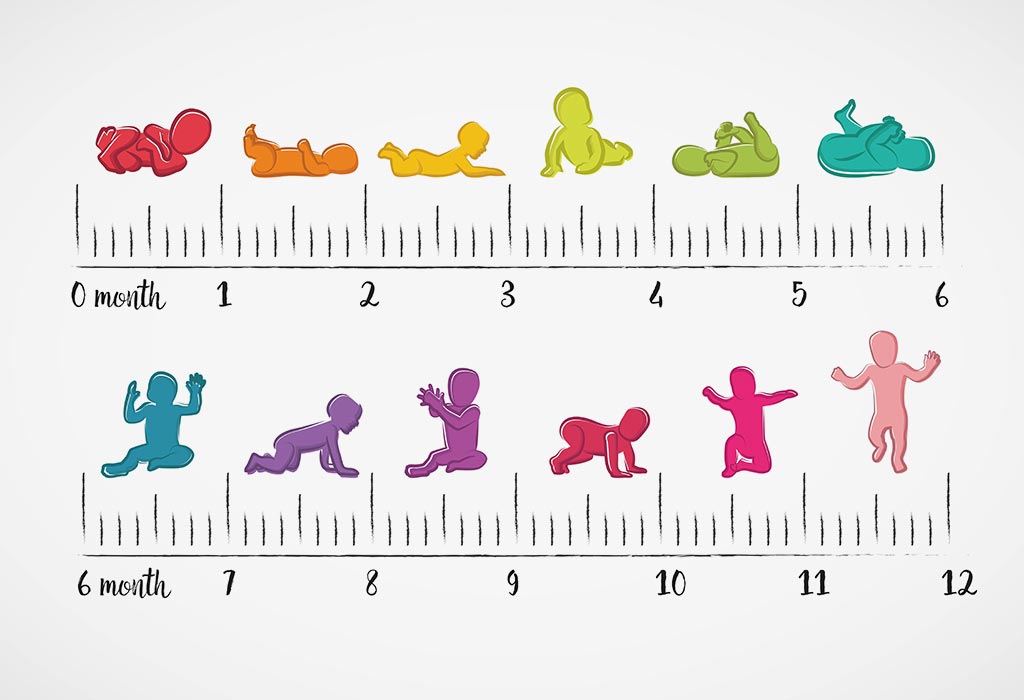As a new parent, you may be wondering what to expect in your baby’s first year of life. From the moment they are born, babies undergo an incredible amount of development and change. In this article, we’ll explore the stages of baby development up to 12 months, so you can better understand your little one’s growth and milestones.
Table of Contents
0-3 Months
The first three months of a baby’s life are often referred to as the “fourth trimester.” During this time, your baby is adjusting to life outside of the womb and developing their basic senses. They will begin to focus on faces and track moving objects with their eyes. Your baby will also start to develop their social smile and cooing sounds, which are a way for them to communicate with you.
At this stage, your baby will also start to gain head control and be able to lift their head briefly while on their stomach. They will begin to grasp objects, and you may notice them bringing their hands to their mouth and sucking on them for comfort.
4-6 Months
By four months, your baby will become more interactive and communicative. They will start to babble and make consonant sounds, and they may even be able to imitate sounds that you make. Your baby will also start to roll over and sit up with support.
At this stage, your baby’s hand-eye coordination will improve, and they will be able to reach and grasp objects with more precision. They will also start to develop their fine motor skills by transferring objects from one hand to the other.
7-9 Months
Between seven and nine months, your baby will become more mobile. They will start to crawl, scoot, and even pull themselves up to stand. Your baby’s communication skills will also continue to develop, and they may start to understand simple words and phrases.
Your baby’s motor skills will improve significantly at this stage. They will be able to pick up small objects with their thumb and index finger (known as the pincer grasp) and may even start to feed themselves finger foods. Your baby will also start to develop their gross motor skills, such as cruising (walking while holding onto furniture) and standing without support.
10-12 Months
By their first birthday, your baby will have made incredible strides in their development. They will likely be able to say a few words and understand simple instructions. Your baby will also become more independent and want to explore their environment on their own.
At this stage, your baby’s motor skills will continue to improve, and they may take their first steps. They will also start to develop their cognitive skills and problem-solving abilities, such as figuring out how to stack blocks or fit shapes into holes.

Frequently Asked Questions
Q: When should my baby start crawling?
A: Most babies will start to crawl between six and ten months, but every baby is different. Some babies may skip crawling altogether and go straight to walking.
Q: How can I help my baby’s development?
A: You can help your baby’s development by providing a safe and stimulating environment. Encourage tummy time to help with their motor skills, read and talk to your baby to help with language development, and provide toys and activities that challenge their cognitive abilities.
Q: Should I be worried if my baby hasn’t reached a certain milestone yet?
A: Every baby develops at their own pace, so try not to compare your baby to others. However, if you are concerned about your baby’s development, talk to your pediatrician.
Q: When should my baby start talking?
A: Most babies will start to say their first words between eight and twelve months, but it can vary. Keep talking to your baby and encourage them to communicate with you through babbling and gestures.
Q: Is it normal for my baby to cry a lot?
A: Yes, it is normal for babies to cry a lot, especially in the first few months. Crying is their way of communicating their needs to you. Make sure your baby’s basic needs (such as feeding, diaper changes, and sleep) are met, and provide comfort and affection when they are upset.
Conclusion
Watching your baby grow and develop is an incredible journey. By understanding the stages of baby development up to 12 months, you can better support your child’s growth and celebrate their milestones along the way.
Related video of Baby Development Up To 12 Months
https://youtube.com/watch?v=kX6u5TtCdvE
